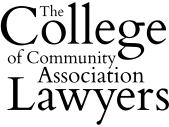 Polish,
Polish,  Ukrainian,
Ukrainian,  Russian,
Russian,  Hindi,
Hindi,  Spanish,
Spanish,  French and
French and  Greek.
Greek.
Recent Blog Posts
How Homeowner Associations Can Be More Consistent and Avoid Enforcement Risk
 Running a homeowner association or condominium association is harder than most people expect. Boards are made up of volunteers who are doing their best, but inconsistent rule enforcement is one of the most common and costly mistakes an HOA can make.
Running a homeowner association or condominium association is harder than most people expect. Boards are made up of volunteers who are doing their best, but inconsistent rule enforcement is one of the most common and costly mistakes an HOA can make.
If your association is facing complaints, selective enforcement claims, or just a growing sense that no one is playing by the rules, 2026 is a good time to get things back on track. Working with experienced Arlington Heights HOA and condominium law attorneys with over 150 years of combined legal experience is the best way to get started.
How Much Can You Recover for a Catastrophic Injury in a Car Crash?
 Serious car crashes happen in an instant and change lives forever. Severe injuries – also called catastrophic injuries – often require years of medical treatment, leaving victims unable to work and live their normal daily lives. This brings up difficult questions. Who should pay for these injuries? And is it possible to be compensated for more than just injuries? Can you recover lost income, for example?
Serious car crashes happen in an instant and change lives forever. Severe injuries – also called catastrophic injuries – often require years of medical treatment, leaving victims unable to work and live their normal daily lives. This brings up difficult questions. Who should pay for these injuries? And is it possible to be compensated for more than just injuries? Can you recover lost income, for example?
If someone else caused the accident that left you or your loved one with a catastrophic injury in 2026, you have the right to seek compensation for your losses. For catastrophic injuries, these costs can reach into the millions of dollars over a lifetime. Our Arlington Heights personal injury attorneys can answer your questions and help you pursue the compensation you need.
Pros and Cons of Choosing an HOA for a Housing Development
 If you are planning a housing development in Illinois, one of the most important decisions you will make is whether to establish a homeowners association. An HOA can provide structure, protect property values, and create a cohesive community. But it also brings costs, regulations, and potential conflicts that developers and residents must manage carefully.
If you are planning a housing development in Illinois, one of the most important decisions you will make is whether to establish a homeowners association. An HOA can provide structure, protect property values, and create a cohesive community. But it also brings costs, regulations, and potential conflicts that developers and residents must manage carefully.
Our Cook County condominium and HOA law attorneys offer free consultations and can guide you through the process of establishing and managing a homeowners association. With over 150 years of combined legal experience, our firm helps HOAs operate effectively while minimizing legal risks.
What Does a Homeowners Association Do?
A homeowners association is a legal organization that manages a residential community. When someone buys property in a development with an HOA, they automatically become a member of the association and must follow its rules. The HOA typically owns and keeps up common areas such as parks, swimming pools, clubhouses, and entrance landscaping.
What Is the Process of Buying a Home in Cook County?
 Buying a home is one of the biggest financial decisions you will ever make. If you are a first-time buyer or someone who has not purchased property in many years, the process can feel overwhelming. There are contracts to review, inspections to schedule, and legal documents to sign. Understanding each step can help you feel more confident as you move toward owning your new home.
Buying a home is one of the biggest financial decisions you will ever make. If you are a first-time buyer or someone who has not purchased property in many years, the process can feel overwhelming. There are contracts to review, inspections to schedule, and legal documents to sign. Understanding each step can help you feel more confident as you move toward owning your new home.
Having a local Cook County real estate attorney on your side is not just a good idea. It is standard practice. Unlike some states where title companies handle everything, Illinois buyers typically work with an attorney to protect their interests throughout the transaction.
Chicago Agent Magazine claims that over 130,000 homes were sold in Illinois last year. If you are hoping to buy a home in 2026, Dickler, Kahn, Slowikowski & Zavell, Ltd. is here to help.
What HOAs Need to Know About Grounds Maintenance Services
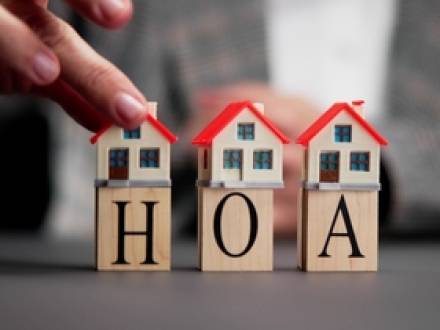 Homeowner associations manage a wide range of responsibilities, and grounds maintenance is often one of the most visible and costly aspects of community management. When landscaping is neglected or snow removal falls behind schedule, residents will notice immediately, and they may make complaints. Clear policies about grounds maintenance services can help HOAs maintain property values, meet their legal obligations, and keep residents satisfied with their community.
Homeowner associations manage a wide range of responsibilities, and grounds maintenance is often one of the most visible and costly aspects of community management. When landscaping is neglected or snow removal falls behind schedule, residents will notice immediately, and they may make complaints. Clear policies about grounds maintenance services can help HOAs maintain property values, meet their legal obligations, and keep residents satisfied with their community.
HOAs must clearly define what types of grounds maintenance services the association will provide and which services will remain the responsibility of individual homeowners. These distinctions should be spelled out in the association's governing documents and communicated regularly to all residents. As associations prepare to address issues related to HOA law in 2026, it will be important for them to operate transparently and give homeowners proper notice of their obligations. Well-drafted maintenance policies are more important than ever, and a law firm with a strong understanding of these issues can help HOAs resolve any concerns that may arise.
Energy Upgrades vs. Owner Objections in Illinois Condos
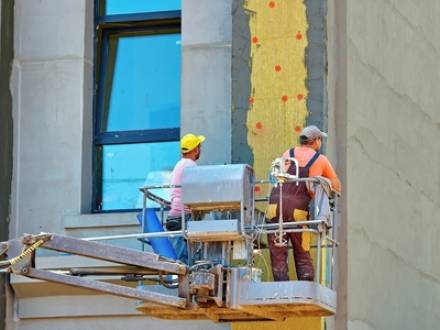 Perhaps energy costs are high for all condo owners due to aging heating systems, outdated lighting, or drafty windows. Since Illinois is currently offering some of the strongest energy-efficiency incentives in decades, many condo boards are fast-tracking needed upgrades. While grants or state incentives might cover part of an upgrade, a special assessment will likely be required to fund the remainder. What happens when a vocal group of owners insists that the upgrades are unnecessary or too expensive?
Perhaps energy costs are high for all condo owners due to aging heating systems, outdated lighting, or drafty windows. Since Illinois is currently offering some of the strongest energy-efficiency incentives in decades, many condo boards are fast-tracking needed upgrades. While grants or state incentives might cover part of an upgrade, a special assessment will likely be required to fund the remainder. What happens when a vocal group of owners insists that the upgrades are unnecessary or too expensive?
Can condominium owners legally block a special assessment for energy-efficient improvements, or does the board have the authority to move forward? Condominium law can be complex, so when owners resist the cost of an upgrade that the board believes is necessary, it is important to understand exactly what authority the Illinois Condominium Property Act gives them. Condominium boards should consult an experienced Cook County, IL condominium law attorney to ensure they stay on the right side of the law.
Illinois Medical Malpractice: The Most Common Causes
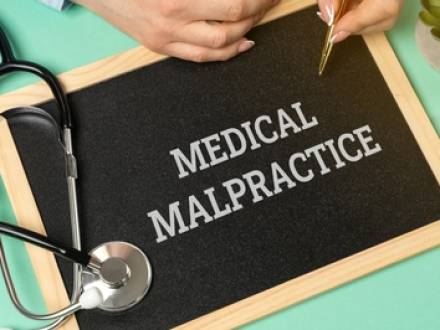 When you walk into a doctor’s office or a hospital, you expect professional, skilled care. Unfortunately, across the state of Illinois, thousands of patients experience preventable medical errors that can leave them with worsening symptoms, new injuries, permanent disabilities, or worse.
When you walk into a doctor’s office or a hospital, you expect professional, skilled care. Unfortunately, across the state of Illinois, thousands of patients experience preventable medical errors that can leave them with worsening symptoms, new injuries, permanent disabilities, or worse.
Medical malpractice remains one of the most complex and emotionally charged areas of Illinois injury law. While each case is unique, certain types of mistakes occur far more often than others, from misdiagnoses to surgical errors. When these errors rise to the level of negligence, victims face long-term complications, financial losses, and life-altering injuries.
Understanding the top causes of medical malpractice claims in Illinois can help you recognize whether negligence played a role and whether you have a legal claim to recover damages. If you believe you are the victim of medical negligence, it could be time to speak to an experienced Arlington Heights, IL medical malpractice attorney.
Can Illinois Condo Boards Be Sued for Underfunded Reserves?
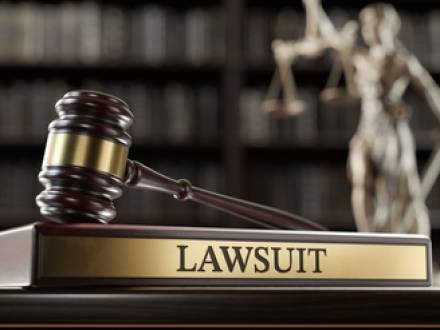 Illinois condominium associations must maintain financially healthy reserves, both for future repairs and for the legal protection of the board itself. When condo owners are told they must pay for a repair because there are insufficient reserves, the board should expect pushback. When reserve funds are underfunded, owners may begin pointing fingers at board members for mismanagement or breach of fiduciary duty. The question then arises regarding whether an underfunded reserve account is sufficient to trigger legal exposure for the board.
Illinois condominium associations must maintain financially healthy reserves, both for future repairs and for the legal protection of the board itself. When condo owners are told they must pay for a repair because there are insufficient reserves, the board should expect pushback. When reserve funds are underfunded, owners may begin pointing fingers at board members for mismanagement or breach of fiduciary duty. The question then arises regarding whether an underfunded reserve account is sufficient to trigger legal exposure for the board.
The answer to that question likely depends on how and why the shortfall occurred. Condominium and HOA boards have rules and laws they must abide by, but even when everything is done correctly, a lawsuit can still occur. If your board is being sued or has questions regarding reserves, speaking to an experienced Cook County, IL condominium law attorney can help you understand your obligations.
Elder Abuse Online: Nursing Home Staff and Privacy Breaches
 The rise of social media has resulted in a troubling new "trend" regarding Illinois nursing home abuse. Staff in nursing homes are posting "elder shaming" videos on TikTok, sharing unauthorized photos of elderly patients in group chats, and misusing smartphones to deliberately humiliate elderly residents.
The rise of social media has resulted in a troubling new "trend" regarding Illinois nursing home abuse. Staff in nursing homes are posting "elder shaming" videos on TikTok, sharing unauthorized photos of elderly patients in group chats, and misusing smartphones to deliberately humiliate elderly residents.
While these acts are certainly unethical, they also violate Illinois privacy laws, criminal statutes, and the Nursing Home Care Act (210 ILCS 45/). When loved ones are filmed, exposed, or mocked online by those who are supposed to be caring for them, personal injury lawsuits may be filed.
Although digital abuse differs from physical or emotional abuse and neglect, it can be just as harmful. If your loved one has been shamed or humiliated through digital avenues, speaking to an experienced Arlington Heights, IL nursing home abuse attorney can help you seek justice on his or her behalf.
Can Condo Associations Regulate Cooking Odors, Cannabis, and Vaping?
 Condominium boards are usually well-versed in handling noise complaints from parties or excessively loud neighbors, but now associations are facing a new kind of nuisance dispute – smells. From cannabis smoke drifting through the vents, vaping in common areas, and strong cooking odors, issues of odors can raise awkward questions regarding how far an association can go in regulating private behavior inside a unit. Does the condominium board face liability if repeated complaints about smells are ignored?
Condominium boards are usually well-versed in handling noise complaints from parties or excessively loud neighbors, but now associations are facing a new kind of nuisance dispute – smells. From cannabis smoke drifting through the vents, vaping in common areas, and strong cooking odors, issues of odors can raise awkward questions regarding how far an association can go in regulating private behavior inside a unit. Does the condominium board face liability if repeated complaints about smells are ignored?
How can a condominium association balance residents’ individual owner rights and the right to privacy with the comfort of other owners? It is important to understand the condominium board’s authority under the Illinois Condominium Property Act (Ch. 765, Act 605, Sections 1 through 35) and how related case law can help navigate these challenges. An Arlington Heights, IL condominium association law attorney can help guide you through this tricky situation to ensure you follow the law and avoid claims of overreach or bias.


